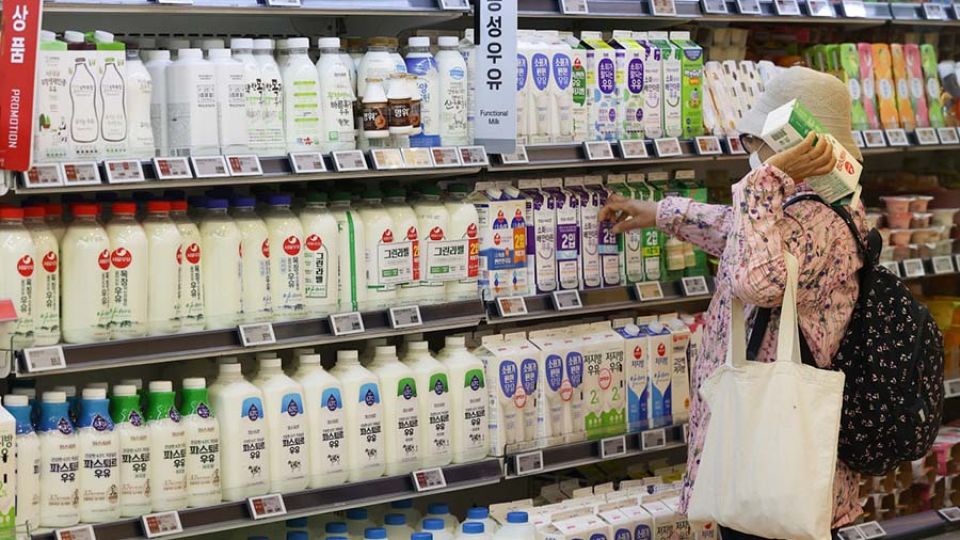November 14, 2022
SEOUL – With the upcoming milk price hike slated for this week, South Korean consumers are likely to see a series of price increase in bread, butter and dairy products — everyday low-cost items — worsening the already soaring inflation.
Seoul Dairy Cooperative, the largest supplier of milk and dairy products here, recently announced it will increase the price of milk and dairy products around 6 percent starting Thursday. A 1-liter carton of the company’s milk will be at least 2,800 won ($2.10) in supermarkets.
Maeil Dairy and Namyang Dairy announced price hikes of 9.6 percent and 8.7 percent, respectively, raising the price for a 900 milliliter of milk to 2,860 won and a liter of milk to 2,880 won.
The surge in the milk price will likely bring up the prices of bread and coffee, as well as butter, cheese, cream and other dairy products.
“I spend around 300,000-400,000 won a month in purchasing milk to make lattes and milk-based drinks,” said a coffeehouse owner surnamed Lee, who runs a store in Gunpo, Gyeonggi Province. “I cannot dare raise the price due to the fear of losing customers. Purchasing cost-effective sterilized milk is the only thing I can do.”
Dairy companies’ hike in the price of milk comes as the Korea Dairy Committee, a private organization that oversees fair distribution of raw milk, decided to increase the price of 1 liter of raw milk by 49 won on Nov. 4. Rising costs of logistics and energy and the weak Korean won also added pressure on the companies to raise price, sources said.
In addition, overall milk consumption is shrinking while domestic milk is losing its competitive edge against inexpensive imported milk, which is penetrating the local dairy market.
According to a report from Rep. Eo Gi-ku, the consumption rate of domestic milk decreased from 48.1 percent in 2020 to 45.7 percent last year. Compared to 10 years ago, the figure showed a huge drop from 62.8 percent, while the market share of imported milk jumped from 37.2 percent to 54.3 percent.
Drying up demand for local milk has led to the underperformance of domestic dairy companies. Purmil, the dairy manufacturer previously owned by Lotte Group, said Thursday it will downsize 30 percent of its workforce, citing the need to improve management efficiency. This announcement came about a month after the firm had said it would lay off the entire staff of 360, drawing ire from the firm’s labor union and some 500 retail stores.
The Ministry of Agriculture, Food and Rural Affairs on Nov. 4 requested food companies refrain from imposing drastic price hikes on food products using milk.


